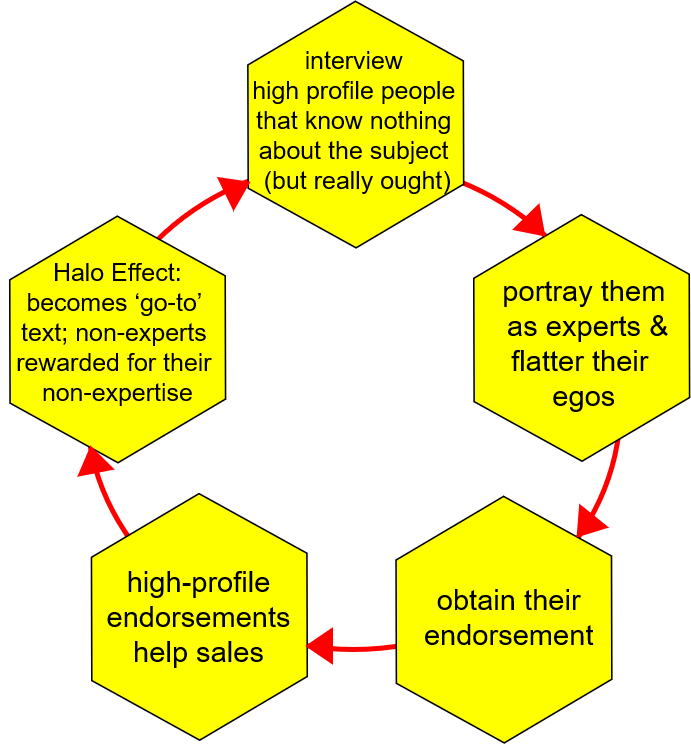
Another unexpected benefit of lockdown. I used to have to spend hundreds of pounds to travel to conferences to get angry about the parlous state of academia and what might laughingly be called the knowledge industry. Now I get to log in to a free webinar while sitting at home, looking at nature outside my office window. I find the anger dissipates faster when you get to watch a blue-tit feeding its four just-fledged offspring from the bird-feeder.
Sadly though, not fast enough to prevent me feeling the need to write another rant-y blog article.
This week’s primary anger maker was a Cisco-sponsored event for the launch of a new book on leadership. The author in question – I won’t name him (it is a he) as it feels like adding oxygen to an already alight dumpster-fire of a TED-speaking career. Not bad for someone that still looks and sounds like he lives at home with his parents.
The dumpster-fire in question is the effect this author and his three previous ‘best-sellers’ seems to be having on the world of business. Which, frankly, doesn’t need any more oxygen either these days, never mind more fuel. This, rather than the subject-matter-dunce penned book, becomes the point of the rant.
The premise of the anger-inducing new book was to think about leadership in the future. Fifteen years into the future to be precise. So far so good. It’s an interesting question. Provided, of course, that you follow it up with a sensible method for obtaining answers. Of which going to interview large numbers of CEOs is definitely not one.
CEOs get to be CEOs by having been operationally excellent yesterday. I’ve yet to meet a CEO anywhere that understands what innovation is. Or what the pulse rate of their industry is. Or where on a Complexity Landscape would they place their organisation. Or what antifragile means. Which basically means that asking this cohort about what the world will look like in fifteen years is about as valid as me asking the cat. Lennie has no idea, and neither do CEOs. On balance, I think if I had to pick one, I’d go with Lennie. At least he knows he doesn’t know.
So what, you say. Just ignore the stupid book that results from the interviews. What do I care? Much as I’d love to be able to do that, it turns out that it has already triggered a host of five-star reviews on Amazon. Thus putting into play a ‘virtuous cycle’ that I imagine the naïve author (or, more likely, his publisher) was rather less naïve about. Writing (lord save me) 300+ pages of grandchild teaching grandmothers to suck eggs cliché-ridden glibness turns out to be a most excellent way to flatter the egos of future-blind CEOs. It sets up a rather splendid bit of symbiotic sycophancy: By writing an endorsement of the book, the CEOs get to show their shareholders that they’re featured thought-leaders in a book about not just leadership, but leadership in the future. The author gets to show off all the names of high-profile CEOs that endorsed his work. The publisher then gets to sell a shit-load more books. And, before you know it, the book as become a classic. The ‘go to’ tome on leadership in 2035. No doubt to be picked up and used as a reference guide by just as naïve academics and, worse, people like Dominic Cummings and his growing army of not-so-superforecasters (not so good that is unless they’ve bet on the economic destruction of the UK economy (which I kind of think they have)). This is why we’re in the mess we’re in. And I don’t just mean the UK economy. The whole shebang is in tailspin.
I’m not sure whether we’re too late to stop it, but I do know that if we’re going to stop it before we find ourselves back in the Stone Age, then we have to stop the sort of ‘virtuous cycle’ created by this truly awful piece of leadership half-science. This is what it looks like:

It probably needs a catchier name before it has a chance of being turned into another 300+ page management text, but for the moment, I’m going with the Sycophancy Cycle. That or, Stop The Ride, We All Need To Get Off. I’m drawing up the interviewee list as we speak.
